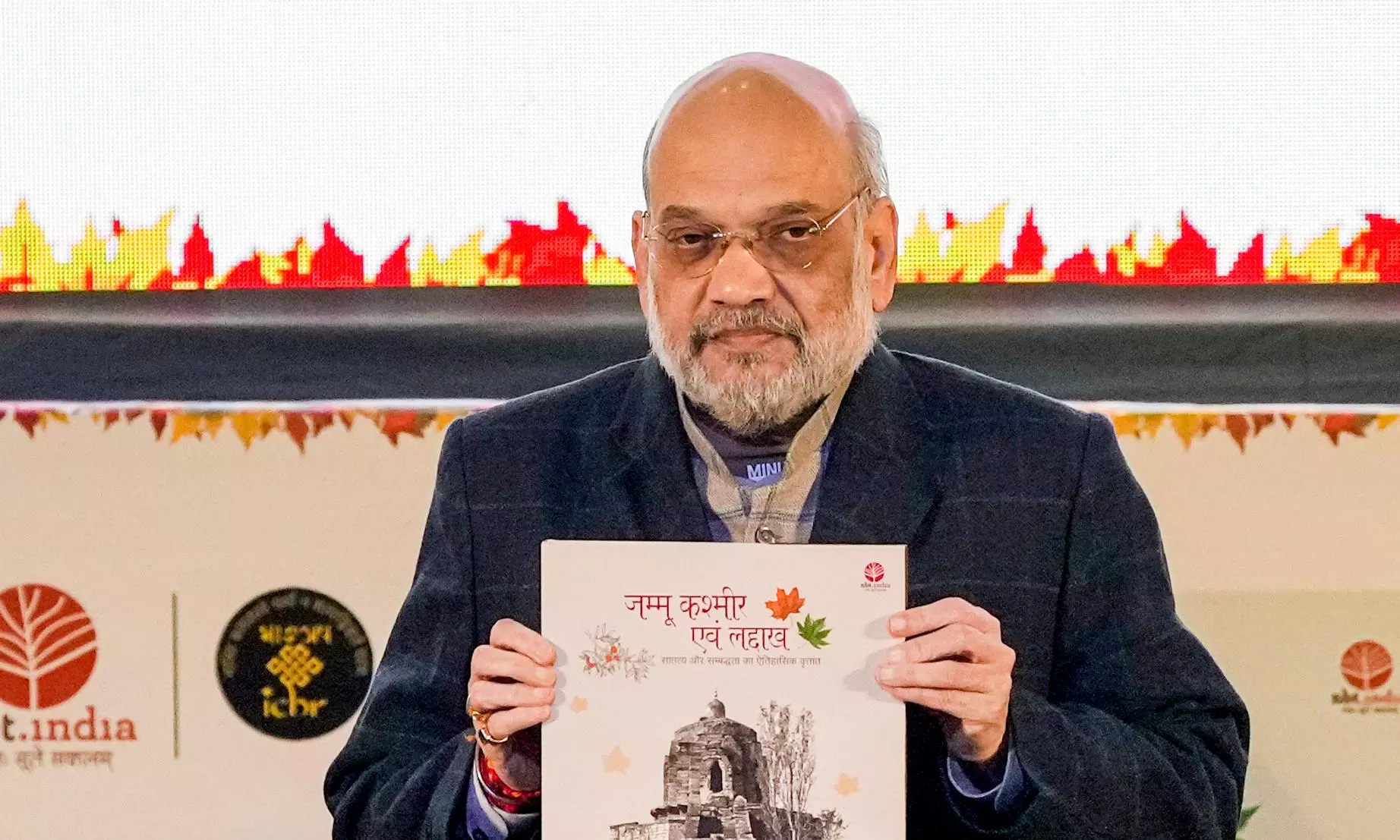
India’s current capabilities do not support territorial expansion: Expert
Amit Shah’s vision of Akhand Bharat reflects cultural pride and political ambition; balancing aspirations with realities on ground is essential: Prof Radha Kumar

“India is not defined by its borders,” declared Home Minister Amit Shah at a recent book launch, igniting a nationwide conversation on the concept of Akhand Bharat.
Speaking at the release of a book titled Jammu and Kashmir and Ladakh Through the Ages by the Indian Council of Historical Research, Shah emphasised India’s cultural expanse from Gandhara (modern-day Afghanistan) to Odisha. Coupled with a veiled reference to reclaiming Pakistan-occupied Kashmir (PoK), his remarks have drawn both praise and scrutiny, particularly in the context of Jammu and Kashmir’s future.
In the latest episode of YouTube programme Capital Beat, The Federal's Neelu Vyas interviewed Prof Radha Kumar, author and former interlocutor for J&K, and explored the ramifications of these remarks, particularly their impact on Jammu and Kashmir.
Also read: Kashmir speech | Did Amit Shah invoke ‘Akhand Bharat’ narrative?
Historical and Cultural Perspectives
Shah’s comments, rooted in historical pride, reflect India’s deep cultural interconnections with its neighbours. South and East Asia have shared a rich tapestry of cultural exchanges over centuries. Gandhara art, for instance, significantly influenced Indian sculpture, underscoring a collective heritage rather than one belonging exclusively to any nation, said Radha Kumar.
She emphasised that while cultural interconnectedness across South Asia is undeniable, claiming historical influence as exclusive to India risks oversimplifying a shared heritage. She underscored the importance of fostering regional collaboration over asserting dominance in cultural legacies.
Political Implications of Akhand Bharat
The concept of Akhand Bharat, long championed by ideological organizations like the Rashtriya Swayamsevak Sangh (RSS), envisions a united India encompassing regions such as Pakistan and Bangladesh.
However, translating this vision into reality is fraught with challenges. India’s current capabilities do not support territorial expansion, making policies like the Citizenship Amendment Act (CAA) the primary vehicle for expressing cultural and ideological ambitions. The CAA’s selective refuge to non-Muslim minorities from neighbouring countries is emblematic of this cultural extension.
Jammu and Kashmir: The Center of Focus
Shah’s references to reclaiming PoK resonate strongly with nationalist sentiments but raise critical questions about their feasibility and implications.
In Jammu and Kashmir (J&K), there is growing dissatisfaction over the delayed restoration of full statehood. Economic grievances and a perceived lack of local empowerment under the lieutenant governor’s administration have further exacerbated frustrations. The rhetoric around PoK risks intensifying insecurities in an already fragile region.
Also read: No pressure from PM or home minister on us: J-K CM Omar Abdullah
Rhetoric Versus Ground Realities
The escalating rhetoric between India and Pakistan often leads to unintended consequences. Pakistan’s observance of January 5 as “Kashmir Self-Determination Day” highlights the ongoing propaganda battle. Such exchanges can exacerbate cross-border militancy and disrupt stability in J&K.
Instead of fuelling tensions, the focus should be on fostering dialogue and ensuring tangible actions that promote peace and security in the region.
Restoring Stability Through Pragmatic Actions
To address the pressing issues in J&K, the government must prioritize restoring full statehood and empowering its elected administration.
Local governance plays a crucial role in addressing grievances and rebuilding trust. By delaying these measures, the government risks alienating the region further and undermining democratic processes.
Also read: Article 370 restoration: Discussions 'irrelevant', says LG Sinha
A Vision at Crossroads
Amit Shah’s vision of Akhand Bharat reflects both cultural pride and political ambition. However, balancing these aspirations with the realities on the ground is essential.
For regions like J&K, addressing local concerns, fostering inclusivity, and ensuring democratic empowerment are critical steps toward achieving stability and peace. Ideological pursuits must not overshadow the immediate need for practical governance.

